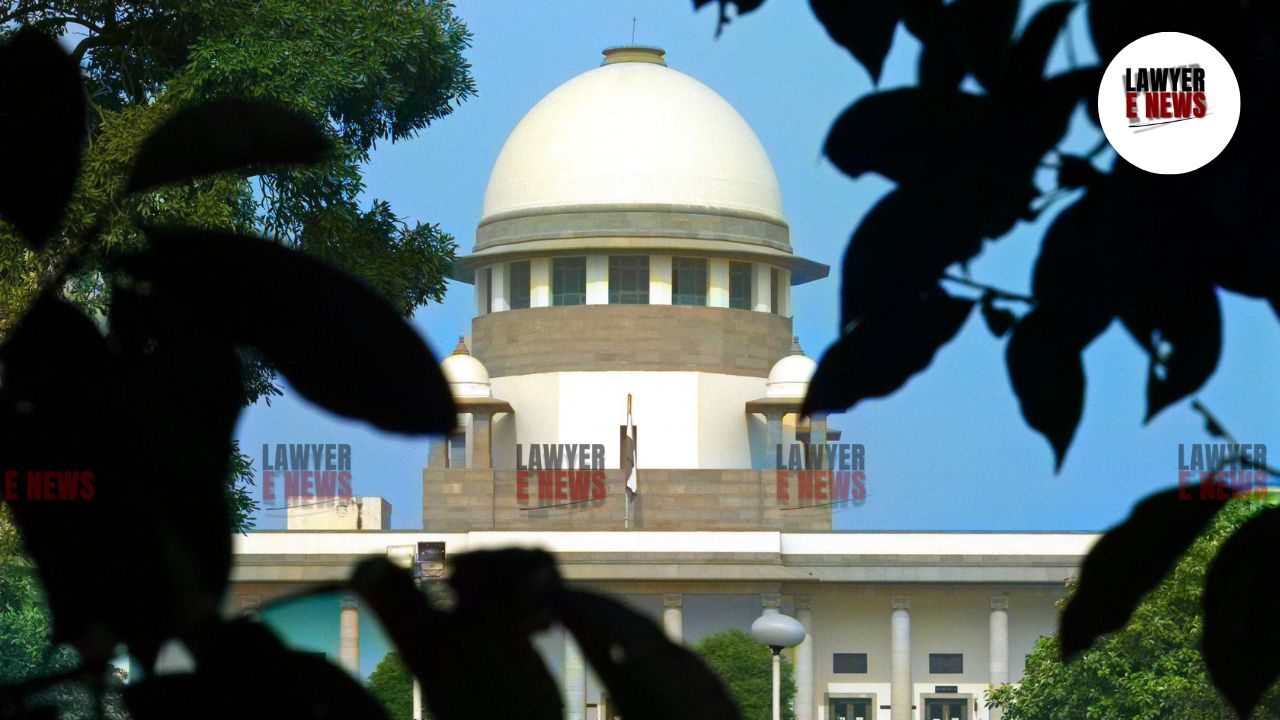-
by Admin
15 February 2026 5:35 AM



Supreme Court of India granted a decree of divorce, marking a significant ruling in matrimonial law. The bench of Justices Vikram Nath and Prasanna B. Varale dissolved the 22-year marriage between the appellant-wife and respondent-husband on grounds of mental cruelty and desertion, under Section 13(1)(ia) and (ib) of the Hindu Marriage Act, 1955 (HMA). Additionally, the Court awarded Rs. 1 crore in permanent alimony and child support.
The appellant-wife and respondent-husband were married in 2002 and initially lived together in Chandigarh. However, marital discord surfaced early in their relationship, leading to separation within two years. The respondent alleged that the appellant deserted him without cause and subjected him to mental cruelty, including filing false dowry harassment complaints against him and his family.
Multiple legal attempts at reconciliation failed, and the respondent ultimately filed for divorce in 2010. While the Trial Court and the First Appellate Court dismissed his petition, the Madras High Court reversed these findings, granting the respondent a divorce on grounds of mental cruelty and desertion.
The appellant challenged the High Court’s decision before the Supreme Court, claiming that the lower courts had rightly dismissed the divorce petition and that the High Court had overstepped its jurisdiction by reappreciating evidence.
The Court underscored the established principle that filing false criminal complaints constitutes mental cruelty. Referring to the appellant’s dowry harassment complaint, which she later abandoned, the Court noted:
“Lodging baseless complaints against a spouse with intent to harass disrupts matrimonial harmony and inflicts significant emotional distress. This clearly falls within the parameters of mental cruelty as outlined in Samar Ghosh v. Jaya Ghosh (2007).”
The Court found that the appellant’s conduct demonstrated malice and caused irreparable damage to the respondent’s mental well-being and family reputation.
The Court observed that the couple had been living separately for over 15 years, demonstrating an irretrievable breakdown of the marriage. It held:
“Prolonged separation creates a presumption that the marriage has broken down irreparably. Maintaining such a relationship serves no purpose and perpetuates misery for both parties.”
The appellant’s lack of genuine interest in reconciliation further supported the claim of desertion. Despite filing a counterclaim for restitution of conjugal rights, the appellant neither pursued it actively nor made any sincere attempts to resume marital cohabitation.
While irretrievable breakdown is not a statutory ground for divorce under the HMA, the Court invoked precedents such as Naveen Kohli v. Neelu Kohli (2006) and Ashok Hurra v. Rupa Bipin Zaveri (1997) to grant relief:
“When a marriage has become a legal fiction, forcing the parties to stay together undermines the very purpose of marriage.”
The Court emphasized that prolonging such a relationship was contrary to public interest and would only exacerbate emotional distress.
The Supreme Court upheld the Madras High Court’s judgment, granting a decree of divorce on grounds of cruelty and desertion. Additionally, the Court awarded permanent alimony of Rs. 50 lakh to the appellant-wife and Rs. 50 lakh to the couple’s daughter for her education and future expenses, including marriage.
Highlighting the principle of ensuring financial security post-divorce, the Court observed:
“Maintenance and alimony encompass the right to sustenance, ensuring the dignity and financial independence of a spouse. This provision is particularly crucial when the marriage has subsisted for a significant period.”
The respondent, a software engineer, was directed to make the payments within four months.
This judgment reinforces critical principles in matrimonial law, particularly concerning mental cruelty, desertion, and irretrievable breakdown of marriage. It also highlights the judiciary’s proactive approach in safeguarding the financial well-being of separated spouses and their children.
The ruling underscores that marriage, as an institution, thrives on mutual trust and companionship. When these foundational elements erode, the courts must prioritize the dignity and welfare of the parties involved, ensuring a dignified exit from a strained marital bond.
Date of Decision: December 19, 2024
